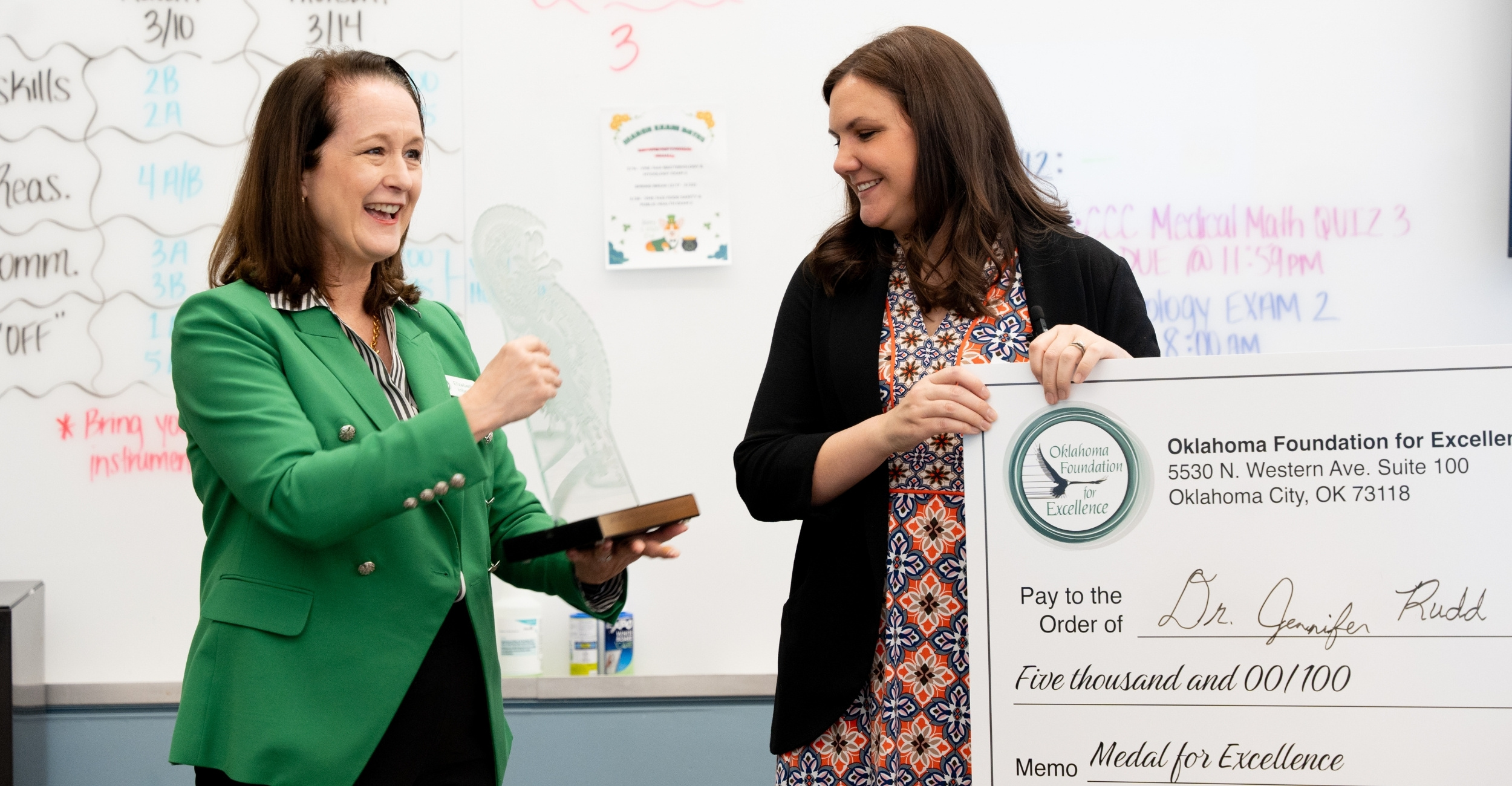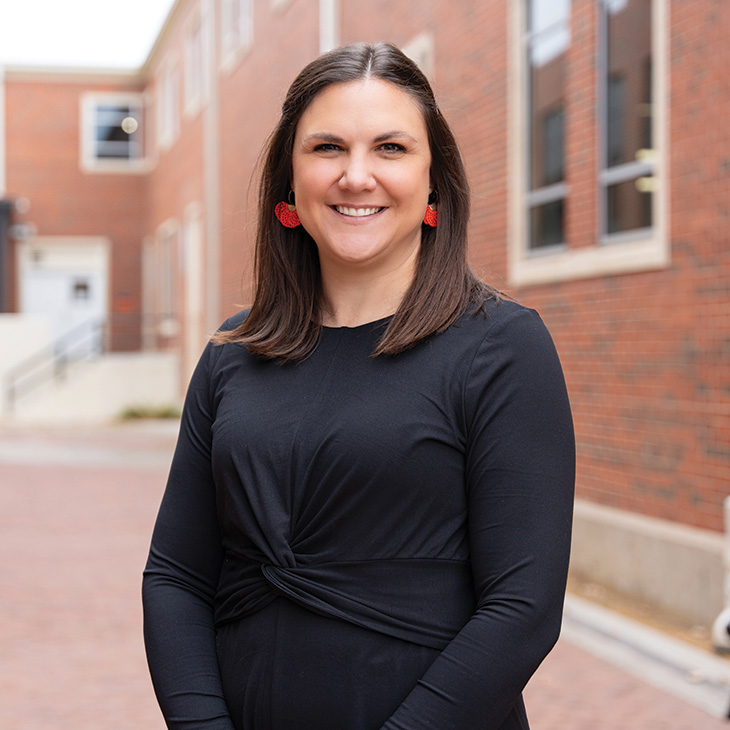
Rudd’s Recognition: Interim associate dean earns Medal for Excellence in Research University Teaching
Thursday, November 20, 2025
Media Contact: Kinsey Reed | Communications Coordinator | 405-744-6740 | cvmcommunications@okstate.edu
Dr. Jennifer Rudd’s impact on veterinary students goes beyond the classroom, transforming students to learn, think and grow as future veterinarians.
Rudd, interim associate dean for academic and student affairs and associate professor at Oklahoma State University College of Veterinary Medicine, recently received the 2025 Medal for Excellence in Research University Teaching from the Oklahoma Foundation for Excellence.
The Medal for Excellence award recognizes public educators who exemplify innovative instruction and exceptional commitment to student success.
Although both of her parents are in the veterinary field, Rudd initially wasn’t drawn to veterinary medicine. However, during graduate school, she felt the calling to explore teaching. Not long after, she found her place in front of a classroom.
“I wasn’t one of those people who always knew I wanted to be a veterinarian,” Rudd said. “But I’ve always loved science and medicine. Once I found veterinary medicine and later teaching, it just made sense.”
Rudd’s first official faculty role at the OSU CVM was in bacteriology, though she was already involved in labs.
“I was nervous at first,” she said. “Over time, I grew into it.”
Now a key member of the OSU CVM faculty, Rudd teaches primarily in the second-year curriculum, which she calls a “transitional year” for students.
“You get to see them really become doctors,” Rudd said. “Watching that lightbulb moment when the pieces finally click — that’s the best part.”

Rudd is especially passionate about teaching infectious diseases. She has a soft spot for pig pathogens, but her true focus is helping students develop clinical reasoning and long-term problem-solving.
“Medicine is constantly changing. The content will evolve, but how students think — that is what will carry them throughout their careers,” Rudd said.
Rudd strives to create an environment where students construct their understanding and take ownership of their education.
“That shift from checking my boxes as a teacher to ensuring students are learning has been the biggest evolution in my career,” Rudd said. “I want them to ask questions, think critically and engage.”
Rudd’s influence does not stop at academics. Over the years, Rudd has mentored students who came close to walking away from vet school, only to find the support they needed to succeed.
“Some of the most meaningful moments for me have come from students who nearly quit, but didn’t,” she said. “They worked hard, we worked together and they came out stronger. Those are the stories that stick with you.”
Rudd said that becoming a great educator is not instantaneous; it is something she works to improve on every year.
“No one is born knowing how to teach. It’s a developed skill,” she said. “I hope I’m a better educator today than I was five years ago, and I hope I’ll be even better five years from now.”
The ongoing growth mindset shaped more than just her classroom approach; it’s influenced how she contributes to the broader curriculum. In her current role, Rudd has the opportunity to help evaluate and refine how each piece of the veterinary curriculum at the OSU CVM fits together.
“It’s exciting to take a step back and look at how the curriculum supports itself as a whole,” Rudd said. “We’re constantly asking how we can make it stronger — not just in content, but in how students experience and absorb that content.”
For Rudd, the Medal for Excellence is a humbling honor, especially because it highlights the value of public education.
“This is not a veterinary award, or a science award, it’s an education award,” Rudd said. “It’s about supporting students and learning. I think it’s incredibly special to see veterinary medicine recognized in that space.”
Rudd is quick to credit her colleagues for helping foster this culture.
“I may have received this award, but it reflects the heart of our college,” Rudd said. “We are all working together to shape the future of veterinary medicine, and I’m so proud to be part of a team that values innovation and student success.”
Rudd hopes the recognition helps shine a light on the impact veterinary educators have on students and the profession.
“Our profession is only as strong as the next generation,” Rudd said. “Being part of the team that’s helping build that generation is at the core of everything I do.”
Her advice to students and aspiring veterinarians? Learn how to teach.
“Every veterinarian becomes an educator — whether it’s to clients, coworkers or students,” Rudd said. “Being able to communicate science and build trust is a critical part of what we do as veterinarians.”
Photo By: Kinsey Reed
Story By: Rylee Glazier | Vet Cetera Magazine
